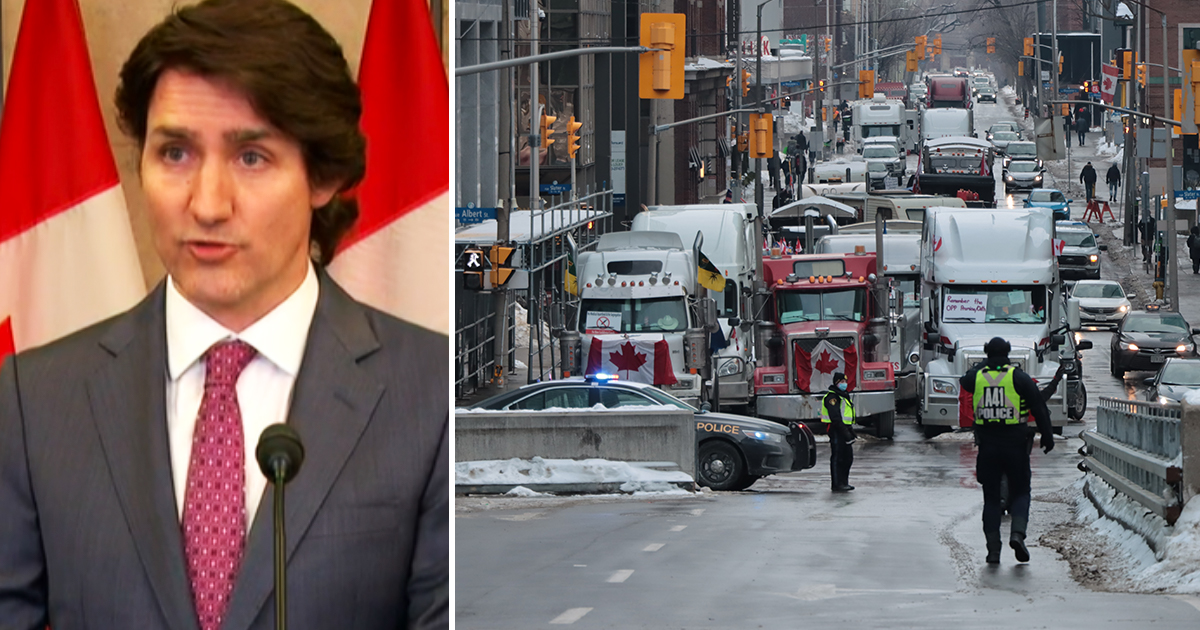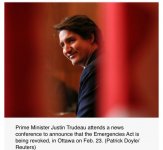National Security Adviser
Jody Thomas, who recommended using the
Emergencies Act, what the experts in law enforcement and intelligence believe just doesn’t matter. Nor does it matter what the legislation actually says. When pressed during her testimony at the Public Order Emergency Commission on Thursday, she said, “The (Emergencies) Act allows for the Governor-in-Council to make a broad decision about public order emergencies.”
In other words, the government can do whatever the hell it damn well pleases?
Almost no one — not
CSIS, not the
Ontario police, not even
the prime minister himself up until the last minute — really believes the Freedom Convoy protests counted as a threat to the “security of Canada” as defined in legislation, or otherwise met the standard for declaring a national emergency.
Don’t worry, if a particular law, let’s say, the Emergencies Act, doesn’t say or do what a government wants it to say or do, in Justin Trudeau’s Canada you can just pretend it does. The rule of law? Constitutional norms? Parliamentary supremacy? Pfft, those are for dorks.
Jody Thomas wants us all to ignore what the Emergencies Act actually says

apple.news
The director of CSIS told the government that he did not believe such a threat existed, and the head of the Ontario Provincial Police intelligence unit testified to the commission in October that police “found no credible intelligence of threats.”
Jody Thomas, who is not a lawyer and has no intelligence gathering experience, however, testified that the wording in the legislation was more of a suggestion. (?)
When Thomas added that the government had broad latitude to determine when a public order emergency exists, Miller responded, “That’s not what it (the act) says.” Thomas then cut him off to say, “I think that this is an argument to have with lawyers.” The rest at the above link…
Earlier witnesses at Emergencies Act inquiry tiptoed around the subject when asked if the Ambassador Bridge blockade was diverting resources from the nation’s capital

apple.news
Prime Minister Justin Trudeau will be under a great deal of pressure when he testifies next week at the public inquiry examining his government’s invocation of the Emergencies Act. The decision was almost certainly illegal and unconstitutional, and nothing that has been presented at the Public Order Emergency Commission so far suggests otherwise.
In order to justify the use of emergency legislation that permits the government to effectively create laws at will and more easily
limit charter rights, it must be shown that there was a genuine “threat to the security of Canada.” Such a threat, which is defined in the Canadian Security Intelligence Service Act, must consist of “activities within or relating to Canada directed toward or in support of the threat or use of acts of serious violence.”
A few days before the act was invoked, Trudeau told Ontario Premier Doug Ford that, 'You shouldn't need more tools — legal tools'

apple.news
Ultimately, no activities tied to the pandemic protests across the country ever met the Canadian Security Intelligence Service’s definition of a national security threat, as defined by the CSIS Act, according to the summary of an interview of service director David Vigneault by Public Order Emergency Commission lawyers in August.
According to the CSIS interview summary, once Vigneault learned the government was seriously considering invoking the Emergencies Act, he felt obliged to “clearly convey” the agency’s view that “there did not exist a threat to the security of Canada” as defined by the CSIS Act.
He briefed high-ranking government members, including Prime Minister Justin Trudeau, of the service’s findings on Feb. 13,
the day before the act was envoked, according to the summary.
CSIS also never found that a foreign state was helping to organize or raise money for the convoy protests

apple.news



